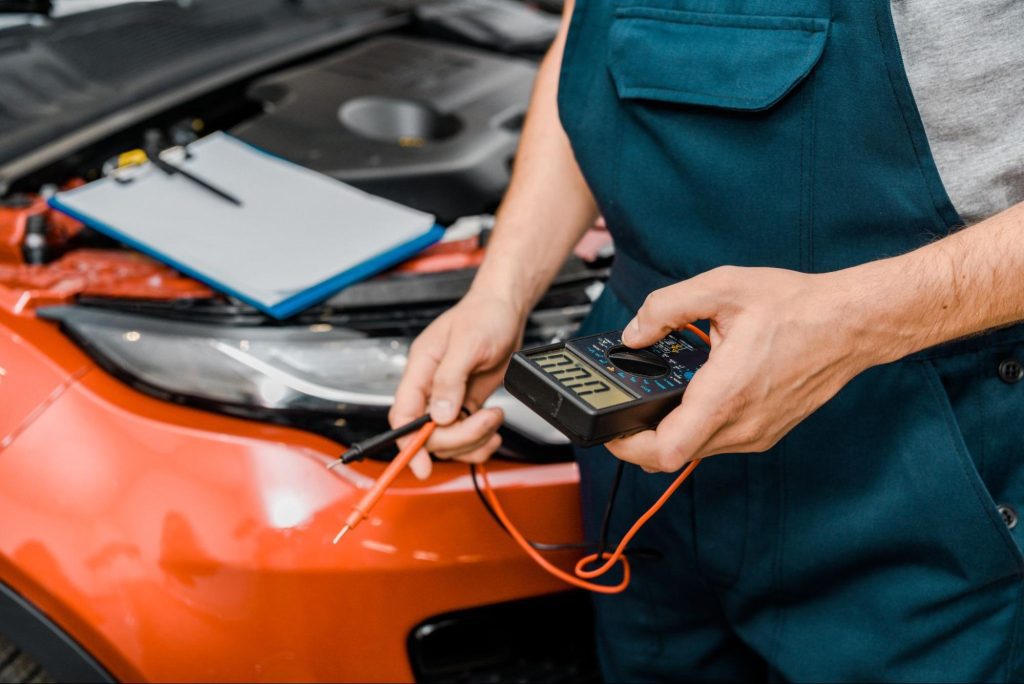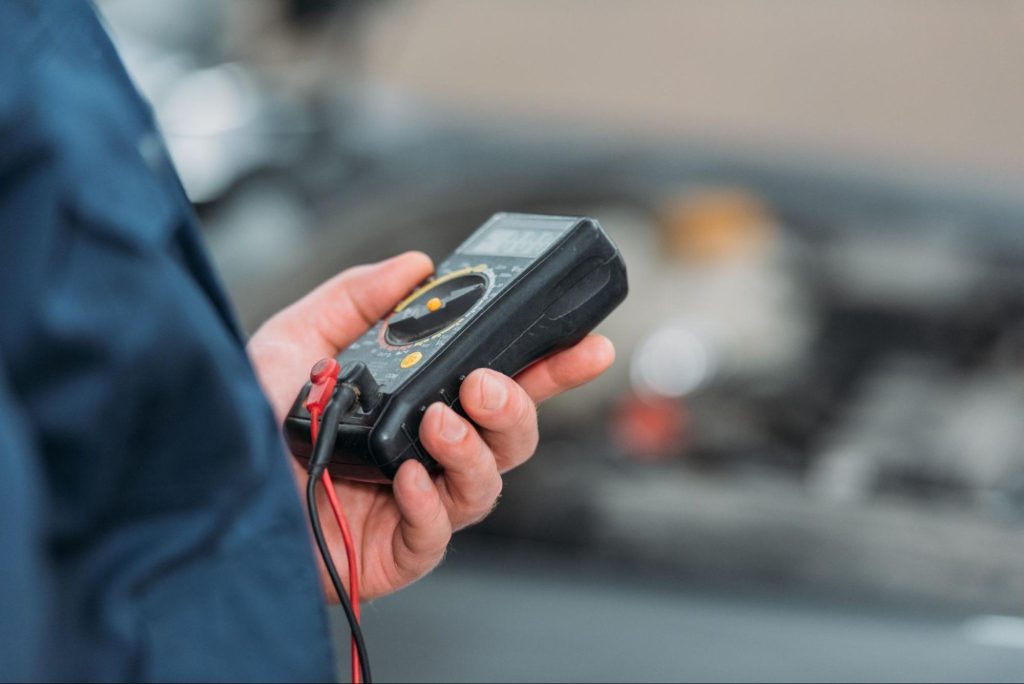Is Your Ignition Control Module Going Bad? Here’s How to Tell
When your vehicle starts acting up—stalling, misfiring, or refusing to start—it could be more than just a dead battery or a faulty spark plug. A bad ignition control module might be to blame. This small but crucial component plays a major role in engine performance, and when it starts to fail, your ride can suffer in serious ways. In this guide, we’ll break down the warning signs, what causes failure, and what you can do next.
If you’re dealing with ignition issues, trust the experts at SOLO Auto Electronics to get your vehicle back on the road—fast, reliable, and done right.
What Does the Ignition Control Module Do?

The ignition control module is responsible for managing the timing of the spark plugs, working closely with the ignition coil to ensure your engine fires at the right moment. This precision directly affects your vehicle’s performance, fuel efficiency, and overall drivability. When ignition modules are working properly, they support smooth starts, clean acceleration, and reliable combustion.
When issues arise—like a sudden check engine light or erratic engine behavior—it may signal problems with the module. Loose connections, corrosion, or overheating are common causes that can lead to potential issues over time. Ignoring these early signs may result in more serious performance failures down the line.
If replacement is necessary, a new ignition control module can cost between $50 and $250, depending on the make and model of your vehicle.
Common Symptoms of a Bad Ignition Control Module

When the ignition control module fails, it can throw off your engine’s entire combustion process. Recognizing the signs early can help prevent further damage and save time under the hood—or in the shop. Here are some common symptoms to watch for:
- Engine misfires or rough idling – Disruptions in spark timing can lead to incomplete combustion and noticeable performance issues.
- Sudden stalling or no-start conditions – A failing module may cut off spark delivery entirely, leaving your vehicle unable to start or prone to stalling.
- Illuminated check engine light – This can signal ignition-related problems, often tied to the control module or a bad coil.
- Backfiring or power loss during acceleration – Irregular timing can cause fuel to ignite at the wrong moment, affecting engine performance.
- Overheating in engine compartments – A failing module may run hot or cause the ignition system to overwork, leading to excessive heat.
- Increased fuel consumption – When the combustion process is off, fuel efficiency suffers as the engine compensates.
Causes of Ignition Control Module Failure

Throughout the lifecycle of a car, certain components endure more wear and tear than others—especially those exposed to heat, vibration, and constant electrical flow. The ignition control module is one of them. Over time, several factors can lead to a bad ignition module and disrupt the ignition process.
Common causes include:
- Heat and vibration damage – Located near or within the engine bay, modules are regularly exposed to high temperatures that can degrade internal circuitry.
- Electrical overloads – Spikes in voltage or faulty wiring can damage the module’s ability to deliver precise timing for spark generation.
- Moisture intrusion or corrosion – Water or humidity inside the engine compartment can lead to short circuits or connection issues.
- Worn or failing related components – A weak ignition coil or poor ground connection can create stress on the module and accelerate failure.
- Age-related degradation – As a car racks up miles, the ignition module naturally wears down, especially if it’s gone unchecked for years.
Performance suffers when the module can no longer maintain the precise timing needed to ignite fuel in the combustion chamber. If you notice irregularities during ignition or while driving, a qualified mechanic should inspect the module to confirm whether it’s the root cause.
How to Test for a Faulty Ignition Control Module

Diagnosing a bad ignition control module isn’t always straightforward, especially in modern vehicles with interconnected systems. However, there are a few reliable methods to confirm if your ICM is the source of poor engine performance, misfires, or failed starts.
Start by turning the ignition switch to the “On” position without starting the engine. This activates the module and allows you to begin your testing. Using a multimeter, set it to the DC voltage setting and connect the leads to the module’s power and ground terminals. A reading within your vehicle’s standard voltage range—usually 10 to 12 volts—indicates power is reaching the module. If there’s no voltage, you may be dealing with wiring issues rather than the module itself.
To test your ICM, disconnect it and inspect the terminals for damage or corrosion. Check the resistance across input and output terminals with the multimeter in ohms mode. Readings that are too high or show an open circuit may point to an internal failure.
For a complete test, rotate the engine manually or use a scan tool to observe whether the module is sending the proper signal to maintain correct ignition timing. Any irregularities here can cause poor engine performance and indicate the module no longer controls spark events properly.
If the readings are inconsistent or out of range, the ignition control module is likely faulty and should be replaced or tested further by a qualified technician.
Can You Drive With a Bad Ignition Control Module?

Driving with a failing ignition control module might be possible, but doing so comes with serious risks. A bad module disrupts spark delivery, leading to inefficient combustion that can strain your engine and lower overall performance. Since the ignition system relies on signals from sensors to time spark events accurately, even minor malfunctions can throw off the balance between fuel and ignition.
If you notice signs of damage—like stalling, engine hesitation, or poor fuel economy—it’s crucial to address them quickly. Ignoring these issues can lead to breakdowns or more expensive repairs. Most reputable auto repair centers have the tools to diagnose ignition-related problems and confirm whether the control module is to blame.
Replace or Repair: What to Do Next
Once you’ve identified lousy ignition module symptoms—like misfires, engine stalling, or no-start conditions—the next step is deciding whether to repair the module or replace it entirely. The right choice depends on the root cause of the failure and the condition of your ignition system as a whole.
Sometimes, the issue may not lie with the module itself but with insufficient grounds or electrical issues in the wiring harness. A thorough inspection can reveal if the failure is related to a faulty connection, corroded terminals, or voltage irregularities. Addressing these problems can restore functionality without needing a full replacement.
However, if the module is internally damaged or the symptoms persist despite repairs, replacement is often the most reliable option. Replacing the module ensures you’re not dealing with intermittent faults, especially in modern vehicles where the ignition system is tightly integrated with other engine controls. Just be sure to rule out other causes, like a fuel issue, which can mimic similar performance problems.
Know the Signs, Protect Your Engine

A bad ignition control module can cause frustrating performance issues and lead to long-term engine damage if left unresolved. From inconsistent spark timing to inefficient combustion, recognizing the symptoms early and understanding your repair options can save you from costly breakdowns. Whether it’s electrical issues, bad grounds, or a failing module, acting quickly is key to keeping your vehicle running strong.
Need expert help diagnosing or replacing your ignition control module? Contact SOLO Auto Electronics for trusted service, fast turnaround, and quality you can count on.




